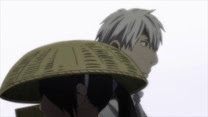 |
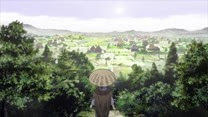 |
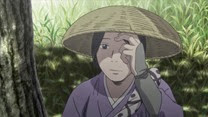 |
If there was such a thing as an archetypal Mushishi episode, that might just have been it.
A week away from Mushishi seems like forever, even after having waited eight years for its return. Its return this week is a classic episode in every sense of the word, one that really cuts to the essence of what this series is. I want to highlight one exchange – or rather, one short monologue from Ginko – that I think does a remarkable job of capturing Mushishi in a few short words:
“You will have to shoulder the burden of those lives. But you were not at fault, and neither were the Amefurashi. It was just an unfortunate twist of fate. Still – you’ve figured out a relatively good way to coexist with the Amefurashi. It isn’t all bad.”
In looking at Mushishi as both meditation and metaphor, I think Ginko’s words to Teru (Hikasa Youko, Ikeda Kyouki as a child) speak volumes. Ginko’s journey isn’t about blame – it’s about acceptance. Accepting that things happen which are beyond our control, and that the best course is not to rail against the injustice of the universe but to make the best of what fate hands you. His own life is testament to this – he lives the life of a ronin because if he stays in one place for too long, he brings trouble to those around him. It applies in practical terms to Ginko, but there’s a larger message here too, as there is in so much of this series, which uses Mushi in symbolic terms as much as literal.
In Teru, Ginko has found someone whose life in many ways parallels his own. Because of her encounter with the aforementioned Amefurashi as a child, she is now unable to perspire or shed tears, but wherever she is she brings the rain with her. The Mushi – “drifters” as Ginko calls them without betraying a hint of irony – have taken over the moisture in her body. Naturally enough the child Teru didn’t realize this until it was too late to save her village from an epidemic caused by the constant rain (which claimed the life of her friend Ryou, played by Ishikawa Ryo – but not the golfer), but at some point the pieces clicked together in her mind, and she made what can only be called a remarkably wise choice – to travel from place to place, bringing rain to those in need of it and quickly moving on.
A story like this can move the modern viewer in many ways, not least by reminding us of what a terrible insecurity it must have been to live your life knowing that the elements could bring devastation to your home at any point. But Teru’s loneliness can move us as well. If there’s ever been a chance acquaintance that Ginko can identify with, it’s this one – he too is able to help people with short visits, but must leave before he can put down roots. Sometimes that help is with a medicine that can cure them or their village, but sometimes – as in this case – all he can offer is wisdom and experience. Ginko can’t make the Amefurashi inside Teru’s body go away (they will die of their own accord eventually) but he can give her a context to understand what’s happened to her, and a reassurance that she’s lived a life of wisdom and compassion herself, and in doing so made a great difference in many lives – just as he has.
“Cloudless Rain” is a prime example of the way Mushishi can emotionally connect without histrionics or high drama – the curious way the series can be detached and compassionate at the same time. If Ginko’s speech above captures the essence of the story in words, the image of Teru staring upwards as a raindrop lands on her face and slowly rolls down, perfectly emulating a tear, does so in pictures. There are few manga or anime that can do more with less than Mushishi can – because it touches us on such an elemental level, it has little need of embellishment. This is a series that’s mastered the art of capturing the profound with the simple.
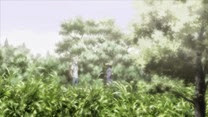 |
 |
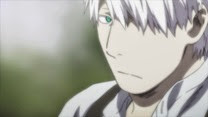 |
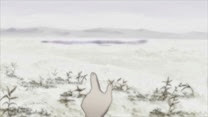 |
 |
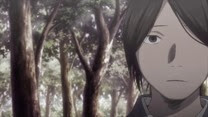 |
 |
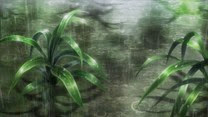 |
 |
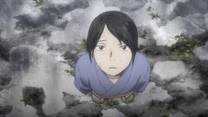 |
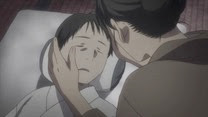 |
 |
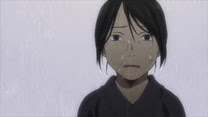 |
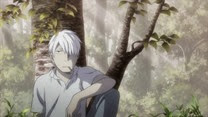 |
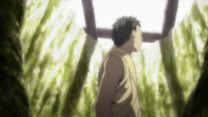 |
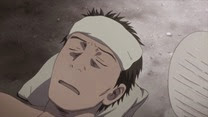 |
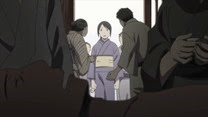 |
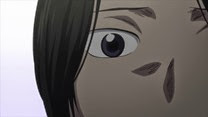 |
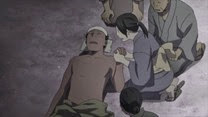 |
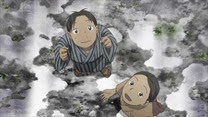 |
 |
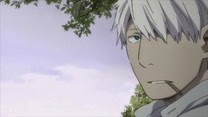 |
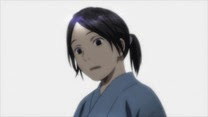 |
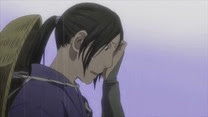 |
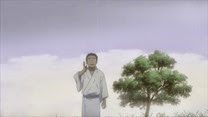 |
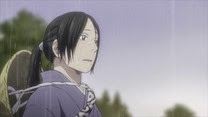 |
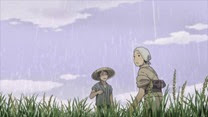 |


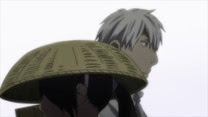
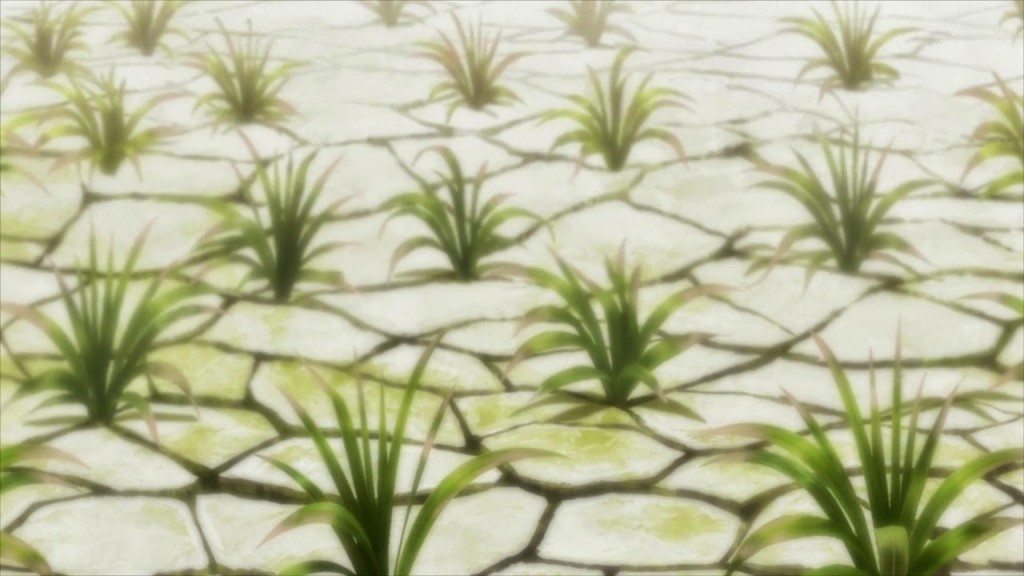
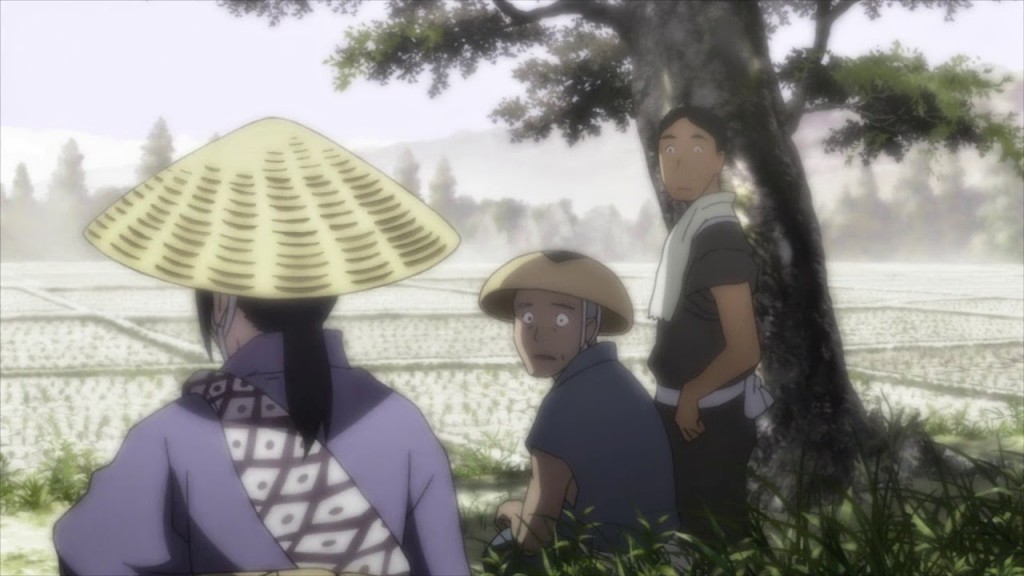
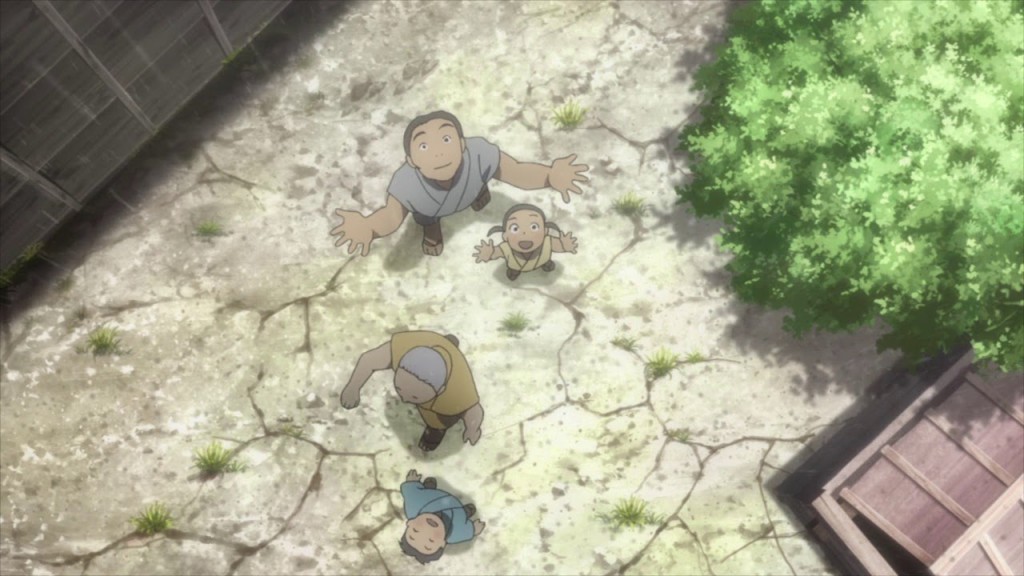
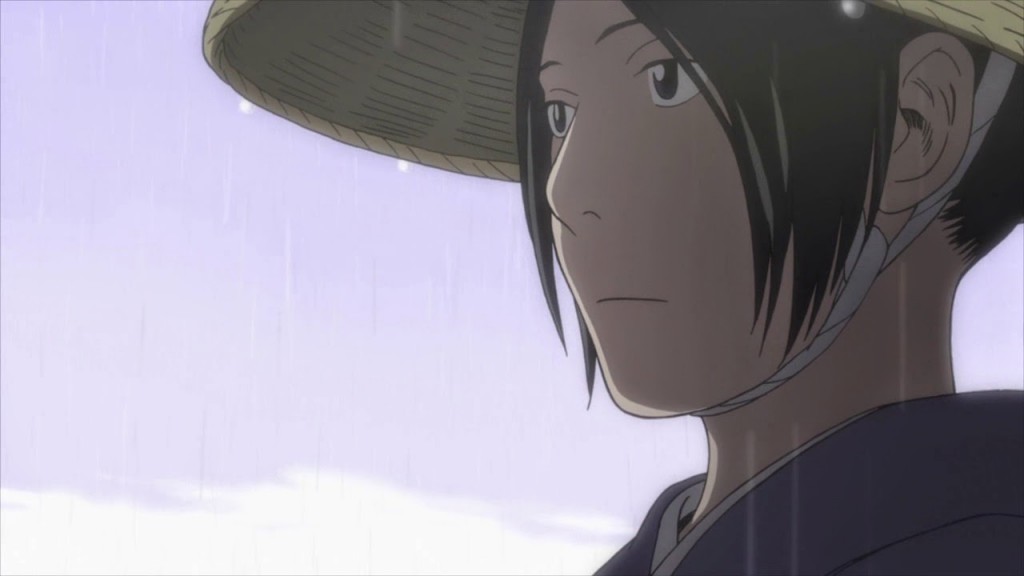
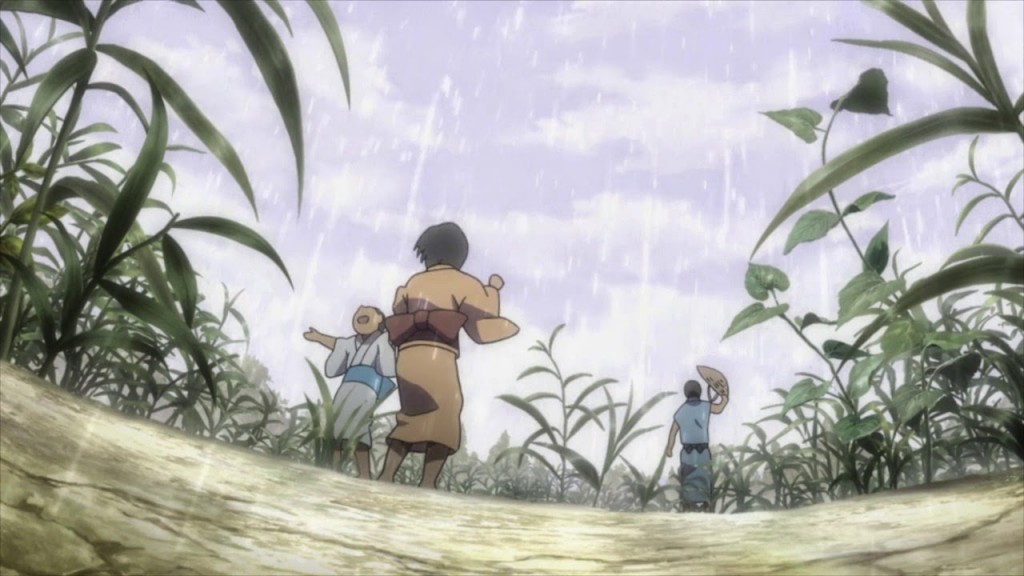
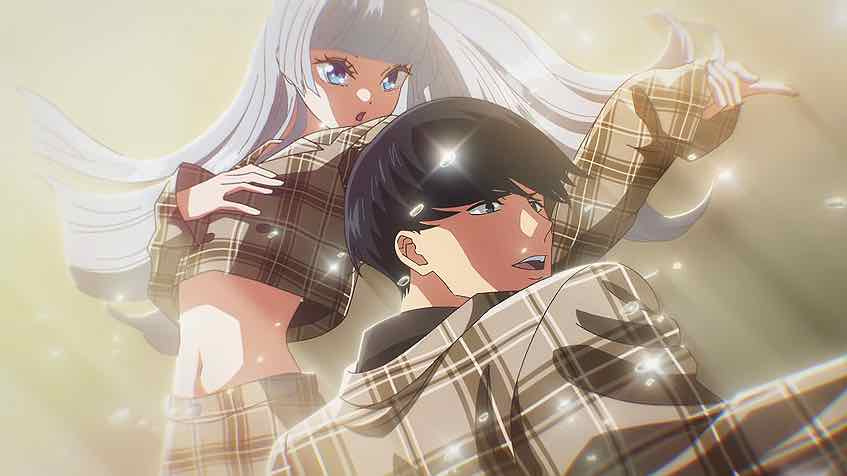
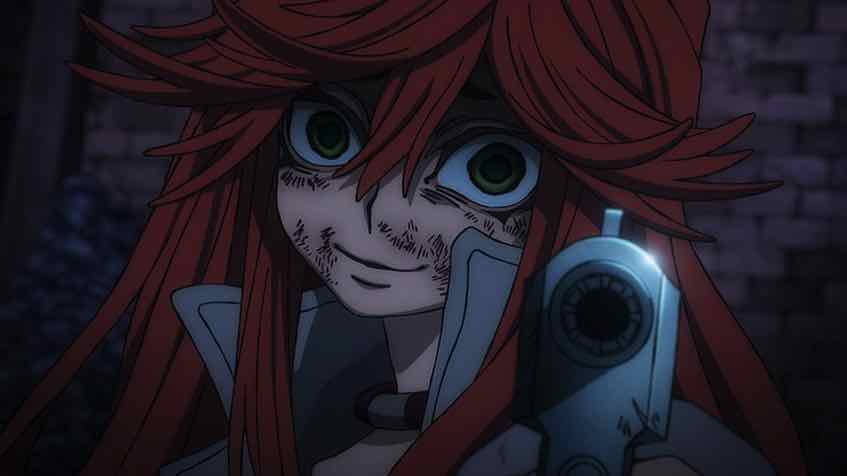
thedarktower
May 24, 2014 at 2:07 pmthere is infinite amount of brilliance in 20 minutes episode of Mushishi. it's amazing.
all mushishi episodes are truly wonderful. but some of them, like this one, feels a bit more special in their own unique way – a truly fantastic episode that ignites your heart over and over again.
sonicsenryaku
May 25, 2014 at 1:44 amIt has been a very long time since ive thought an anime ive watched is superb but Mushishi has given me that feeling again. It brings such resplendent darkness to the nature of life and takes its time to allow its characters to take hold of the story every week. Mushishi does in 20 mins what some series struggle to do with multiple episodes
Kohmata Reizno
May 25, 2014 at 11:40 am"There are few manga or anime that can do more with less than Mushishi can – because it touches us on such an elemental level, it has little need of embellishment. This is a series that's mastered the art of capturing the profound with the simple."
^Beautiful quote right there, and hits the nail on the head perfectly. For me, I was actually pretty apathetic to this episode (at least comparatively to other Mushishi episodes) until the conversation between Teru & Ginko, which did a lot to raise the stock of the episode for me.
admin
May 25, 2014 at 12:50 pmFor me, Mushishi operates very much on the same principle as meditation, and that's what the experience of watching an episode is like. It's a process of clearing your head of unneeded thoughts, and striving towards true contemplation. There's something very primal and elemental about it.
This is much more true in the anime than the manga for me, as great as the manga is – the combination of Nakano Yuto's voice and Masuda Toshio's music (I'm listening to the original OST on earbuds even as I type this, in fact) very much facilitates this process.